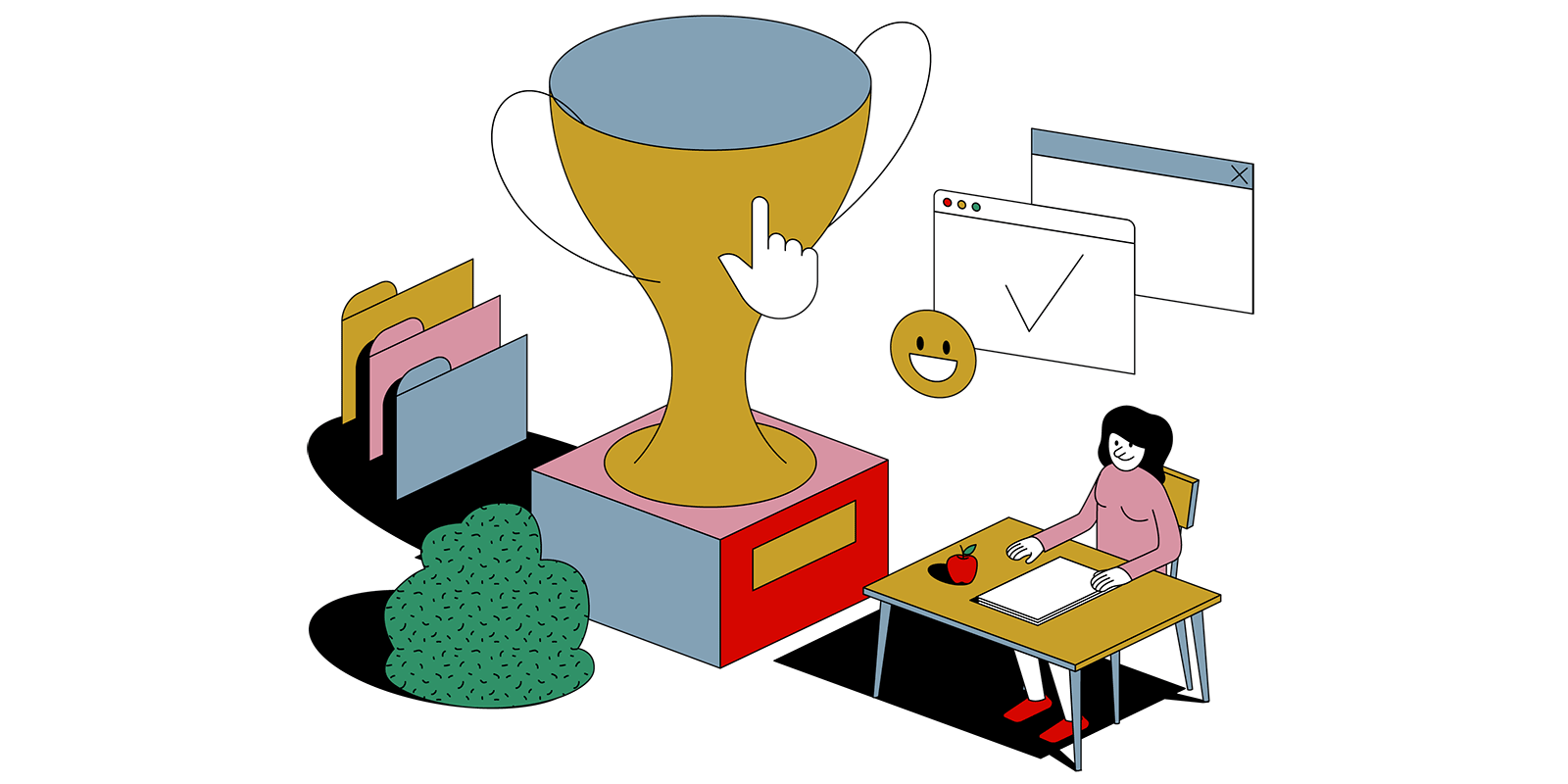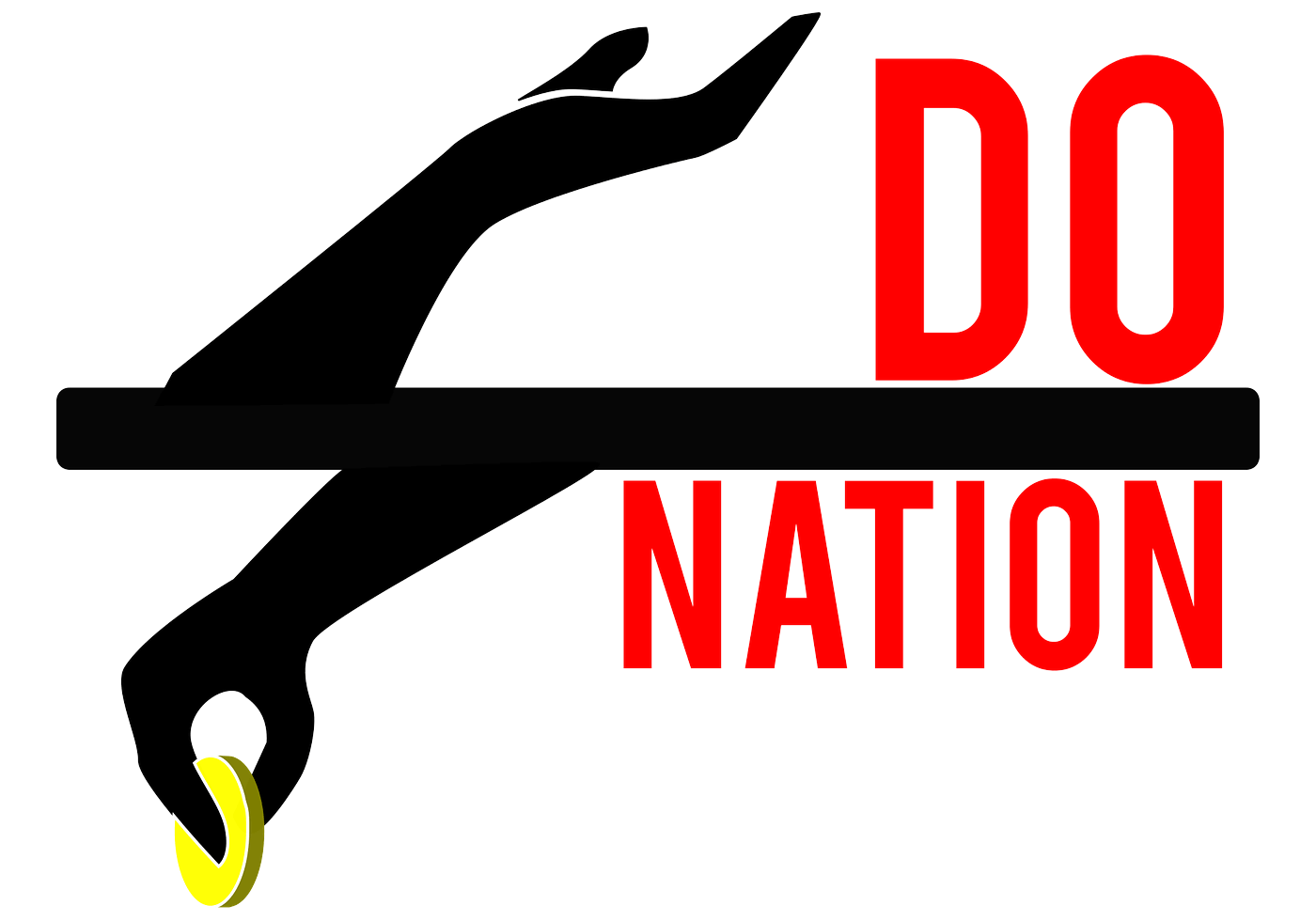Employee recognition is a long-discussed topic and is an important one we need to pay vast attention to. Employee care determines if our business is heading in the right direction or not and if we are valuing our employees the way they should be.

According to a recent study, 85% of employees claimed they are not engaged at work and not valued enough. Moreover, employee rewards are an excellent way of showing your gratitude towards employees; However, these programs are often underestimated by many.
In this article, we will show you the top six employee reward types you can implement in your business this year.
1. Employee recognition
Let's start and think about how good it feels to get recognized at the workplace. Only a simple compliment can make a big difference. What is better than receiving some praise from the boss, right?
Significantly, this is true for those working remotely or with a hybrid schedule. Not seeing your colleagues and managers might get to you, so you can't know what kind of thoughts they have of your work. However, when you give a compliment from a distance, it makes a difference.
Moreover, there are many powerful reasons why you should offer a recognition program. Additionally, employees who don't feel valued will always cost you more and walk out the door. So don't be the one that will have to go through this!
After all, a happy business is healthy, and the manager reflects the company, affecting how clients are treated. Likewise, when managers don't value their employees, employees won't value their job either.
2. Employee discount scheme
Employees love benefits, especially when it can treat them. According to Perkbox, an employee discount scheme was an excellent idea for treating employees, and 40% of them said it reduced stress at work. Additionally, 75% of employees claimed that they would stay at their job only because of this perk benefit.
Employee discounts may include gym membership discounts, and most platforms will offer the following:
- Membership discounts from local gyms or partnerships they have
- Huge discounts on gym clothing, supplements, and more
- Free access to workout programs, yoga classes, and much more
These small perks immensely affect what kind of benefits employees receive and how they can use them. Some other benefits that come along with employee discounts may include:
- Free drinks and snacks at partner clients with your business
- Free vouchers that give employees a slight discount from Uber, and more
- Free monthly subscriptions
3. Donation matching

Corporate matching gift programs and donation matching have been evolving and increasingly popular in the past years as more businesses are considering using them. If you are concerned about corporate gift matching programs and want to create one, you can click here to do so.
Matching gifts are typically a part of corporate philanthropy programs. So here is how it works; basically, the employer matches a gift donation made by the employee. In other words, it is a physical donation, whereas the employee is allowed to donate a set number of meals, and the employer will do the same after.
To maximize the employee's donation potential, employees will request a matching gift for the employer. After, the employer will donate and inform the employee on what they managed to achieve together.
There are different corporate giving programs, and they all differ based on the donation type. Here are the types of matching donations:
- Employee in-kind matching donations
- Employee financial matching donations
- Employee and team grants
Why is donation matching important?
It can be important in many ways since it benefits the company, the employees, and all organizations receiving these donations. Here are a few ways why donation matching is essential:
- Builds employer reputation and branding
- Improves company culture, employee engagement, and retention
- Has many tax benefits
- It has a positive and lasting impact on both employers and employees
4. Employee personalization
Employees nowadays feel more comfortable working for an employer who truly cares and recognizes their hard work. In addition, as the talent market becomes more competitive and employee personalization perks become a priority. Overall, organizations are changing the way they act towards their employees.
According to research, employee personalization and recognition have directly impacted employee retention, company culture, and motivation in the long term. After all, employee recognition is about emotionally connecting with your workers, and personalization includes accepting and rewarding employees for their hard work. For example, it can consist of giving out business cards, putting your staff on your website to feel appreciated, or even giving them a gift from time to time.
The main goal here is to make your team feel valued and give them a personal drive to think about your company. Try to find out what each employee gets excited about and offer something unique for them. Even asking questions or how their day is going might directly affect how they feel. An employee might be living a stressful life, so when you as an employer are helping them out, it can make a significant difference!
5. Employee wellbeing
Employee wellbeing programs directly impact employee recognition and engagement levels. Moreover, it has a direct effect on their mental health. Therefore, we can conclude that sitting too long and working all day may get to your employees in the long run. Therefore, it can lead to long-term health effects such as cardiovascular issues, cancer, and even diabetes.
Additionally, if these issues occur, it can increase your healthcare costs, have a less-productive workforce, and even lower morale. As a result, employee wellness programs are becoming increasingly popular over the years and aim to shift the overall workplace culture and influence healthier behaviors amongst them.
A perfect example of employee wellbeing programs includes engagement with daily new health habits, social interactions, competition, gym memberships, cooperation, praise/recognition, gamification, and more. Furthermore, doing all of this presents a better image of the company and shows a reduction in productivity and absenteeism.
6. Outdoor meetings

Sometimes, we are so focused on work that we forget about the outside world altogether. However, life isn't only about cooperating in the office or during work hours, but meeting outdoors can have a significant impact on long-term relationships with your employees.
Change is good for our minds, and it isn't illegal to act upon it with your employees. After all, it'll make a big difference and even make you stand out as a leader.
You want to stand out from other organizations, and the best way to do this is to take your employees out, go on a trip together, go for a drink or dinner, or even go hiking. In addition, it is good to take a break and get some fresh air from time to time. Hence, there is no harm in doing so and will only directly affect your relationship with your employees.
According to a study, about 64% of employees claimed that their managers positively impacted their careers. Being able to communicate with employees personally may directly impact their daily motivation. If you are a great employer, you'll positively impact your employees too. During outdoor meetings, you can directly influence and advise your team on how they can grow in their professional and personal careers.
So, what do you want? A team that will come to work with a positive mindset and new energy, or those who are burned out only thinking about work 24/7 and losing their work motive over time?
Wrapping it up
Well, that's about it for this article. These were our six employee reward types that directly affect how employees feel at the workplace. Employees should never be disrespected, and you should always ensure that you are the one who is there for them when they are in need of you.
Let's not forget the fact that many organizations don't implement any employee reward programs, and that's where they fail in the long term. If your employees feel undervalued, they won't stay for a very long time and only think about going somewhere else. Hence, it'll also affect productivity rates and even increase the days they won't come to work.
Figure out what you can offer and do it for everyone equally. What you do differently from other companies and organizations will only make you stand out as an employer. The best will stay at your business, and that's what you want to happen. You don't want to end up as an employer who has to hire someone else often now, do you?
